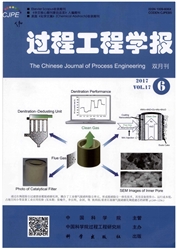

 中文摘要:
中文摘要:
天冬氨酸转氨酶AspAT是苯丙酮酸转氨制备L-苯丙氨酸的关键酶.本研究将大肠杆菌中天冬氨酸转氨酶基因aspC克隆到3种不同质粒中,构建组成型表达质粒pUC/P-aspC,pSE/P-aspC,pET/P-aspC,并分别转化至6种常用的大肠杆菌宿主中.通过对18种重组子的生长及产酶情况的分析,比较了各种重组子生长压力、质粒稳定性与表达酶活的关系,并经SDS-PAGE电泳分析AspAT的表达量,筛选出高产AspAT的重组子BL21(pET/P-aspC),以该工程菌发酵液直接作为酶液,以天冬氨酸和苯丙酮酸(20g/L)为底物,发酵液与底物以1:3的体积比转化生成L-苯丙氨酸16.2g/L,转化率高达80.1%.该体系表达无需诱导,转化无需添加辅酶PLP,展现了良好的产业化前景.
 英文摘要:
英文摘要:
L-phenylalanine (L-Phe) can be prepared from phenylpyruvate (PPA) via an amination reaction mediated by aspartate aminotransferase (encoded by aspC) as the key enzyme. In this study, the aspC gene was cloned into plasmid pUC18, pSE 380 and pET-22b to construct three kinds of constitutive vectors, which were then transferred into 6 strains of Escherichia coli, respectively, to over-produce aminotransferase. From the transformants, the E. coli strain BL21(DE3) harboring plasmid pET/P-aspC showing the highest activity was scored and designated BL21(pET/P-aspC). With L-Asp and PPA (20 g/L) as substrates, the conversion rate reached 80.1% after eight-hour reaction, approaching the theoretical yield. This system had good industrial prospects because no inducer or coenzyme was needed. Furthermore, the results showed the potential of gene engineering on strain selections.
 同期刊论文项目
同期刊论文项目
 同项目期刊论文
同项目期刊论文
 期刊信息
期刊信息
